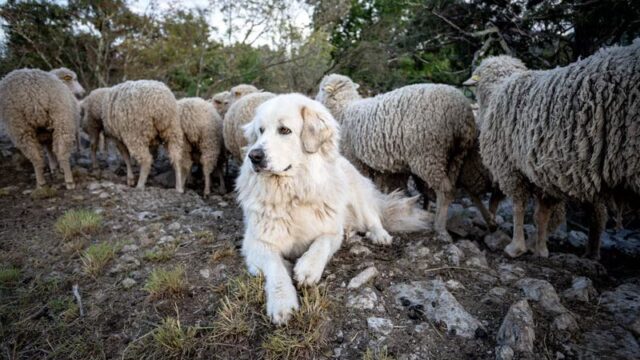Meekness is a Martial Virtue

In “The Necessity of Chivalry,” CS Lewis uses the term meekness to capture the gentle and courteous side of the Christian defender. Meekness pairs with ferocity to form the “double demand [chivalry] makes on human nature”:
The knight is a man of blood and iron, a man familiar with the sight of smashed faces and the ragged stumps of lopped-off limbs; he is also a demure, almost a maidenlike, guest in hall, a gentle, modest, unobtrusive man. He is not a compromise or happy mean between ferocity and meekness; he is fierce to the nth and meek to the nth.
The trouble is that this word is all but guaranteed to cause confusion because modern usage has made it a virtual synonym for weakness. The rhyme probably doesn’t help, though we don’t also confuse strength for length, or pay for say. Merriam-Webster defines meek as “1) enduring injury with patience and without resentment; 2) deficient in spirit and courage.” That first part is fine, but the secondary definition suggests that the meek man’s patience is necessitated by his lameness. Cambridge offers a similarly telling example: “He’s slight, meek, and balding, and hardly heroic.” This fellow has no choice but to be meek because he can’t do anything about the injuries anyways.
Few red-blooded men could understand meekness this way and still think it worth striving for. This is a particularly live issue for English-speaking Christians, given the use of meek in translations of the New Testament: “Blessed are the meek: for they shall possess the land.” We have to ask—Is the Lord calling us to be pushovers?
Thomas Aquinas offers a definitive and refreshing No! Meekness, he writes, “restrains the onslaught of anger” and “properly mitigates the passion of anger.” So when the Lord proclaims, “Blessed are the meek,” he isn’t telling us to be easily imposed upon. He instead challenges us to have authority over our anger and the ability to direct its power rather than being directed by it.
And, despite what you might hear from confused moralizers, anger is not a bad thing. A bit of heat under the collar is not just natural and reasonable when you witness something evil—anger also summons the energy to attack evil. Even Jesus Christ himself got angry. But anger obviously needs to be brought under control and directed toward the right things, or else a man can be destroyed by it—which is why meekness matters.
A description of El Cid from historian Louis Bertrand captures the essence of the virtue: “Fundamentally tempestuous and violent by nature, he learned how to hold himself in check. He got the better of his enemies by a perfect mastery over himself, even though he was sometimes subject to terrible gusts of passion. He restrained them almost immediately. This violent man was able to pass himself off as a man temperamentally moderate.”
One of the great literary embodiments of meekness is Sir Gareth of Orkney, who achieves a famous quest despite a nonstop barrage of taunts and insults from the very lady he is assigned to help. Lynette had come to Camelot seeking Sir Lancelot’s aid in saving her sister from the clutches of evil men. When Arthur instead sends Gareth—who until recently had been laboring in the kitchens—Lynette lashes out like only a haughty woman can. She never hesitates to remind him just how angry she is to be stuck with a “kitchen knave” rather than a proper knight. At one point Lynette demands that Gareth ride downwind of her so that she doesn’t have to smell the kitchen grease.
After so many insults, Gareth would have been justified in turning back and leaving the lady to her fate. Every man has a limit, and meekness does not require us to volunteer ourselves for endless abuse. But Gareth has everything riding on this chance to prove himself worthy of Arthur’s order of knights, and meekness helps him overcome Lynette just as strength and courage help him to overthrow Lynette’s enemies. Also, Gareth does not merely endure her taunts like some detached Buddhist monk—but instead redirects his rage with Lynette toward the opponents in his way. He is hardly “deficient in spirit and courage.” Even Lynette is won over by his undeniable knightliness in the end: dropping the haughtiness, she tells him, “I marvel what thou art.”
A man with less meekness would have returned home with his quest unachieved.
So not only does this virtue have nothing to do with weakness—you can even make a good case that meekness is a martial virtue, a prerequisite for strength and achievement. As George Patton once said, “Wars are not won by fighting battles; wars are won by choosing battles.” While the chronically angry man has his battle chosen for him, the meek man has the power to ask himself whether a particular fight is worth it—knowing that he only has so much time, energy, and strength and he cannot be wasting them on unnecessary conflicts. Meekness aids prudence in helping us choose the right battles.
https://thechivalryguild.substack.com/p/meekness-is-a-martial-virtue
